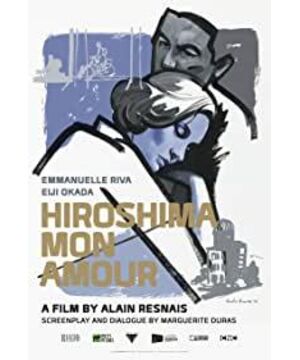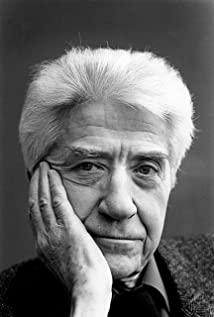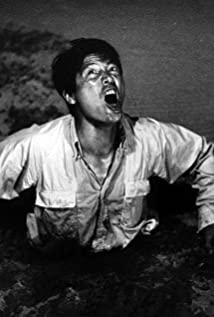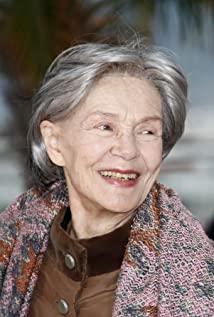One forgets
"You didn't see anything in Hiroshima."
"No, I saw everything, I saw the hospital". Picture: Empty hospital corridors, indifferent faces.
"You can't see the hospital, you can't see anything."
"I've been to the museum four times, and there I saw Hiroshima, scholars, and many people watching the exhibition, photos, a lot of exhibits, focus Iron, debris, skin left from the burn, everything tells of pain. Burning stones, broken stones (the skin of the living person is like maggots in full bloom, densely packed with holes). Also see the woman's hair, one night It all fell off. The Peace Square was very hot, it was 10,000 degrees high when it exploded, and the heat of the sun ignored this square—”
——“You didn’t see anything.” The man said mildly.
"The display is very realistic, the movie is very realistic, these are real, so people are in tears." Picture, dazed child, many children looking forward to you, you. Ruins, under the ruins, there are people reaching out, and flies fly aimlessly. I am reminded of an essay by Chen Danyan, in the Nanjing Massacre short-sleeved, single-piece slaughtered exhibition hall, the bare forearm bones grew new green, like a loofah. A Japanese girl cried and said sadly that this is a human bone?
"You cried," said the man, "why."
Endless ruins, life without purpose, one eyeless eye, many faces of destruction, and more destruction to come, we cry, we don't understand Live, but do not know how to die.
Between the conversations, there has always been a tangled human body covered with crystal dripping sweat, whispering and lingering to death. Even this joy cannot resist pain, because we have memories.
I hate memory.
"I have a good memory, but like you, I tried so hard to forget, so I forgot."
In the picture, the tour guide with a simple smile on the bus. So we forgot. Forget about 200,000 casualties in 9 seconds in Peace Square, forget about 300,000 dead bones under the ancient city of Nanjing, forget about the Gulag Islands, the silence of the media is a kind of forgetting, the hustle and bustle of the media is another kind of fast decay, don’t mention 9.11 to me, please, forget it. Forget the tens of millions of people who starved to death on their own land, who are the tens of millions? Sorry, I forgot. This is so good.
Two Ota River, Ota River
"But is it necessary to forget everything?"
"Everything is starting again, 200,000 casualties in 9 seconds, and it continues to repeat, the earth is sun-baked, chaos. The vegetation is sprouting."
"The Ota River has seven tributaries, and the tides are at the same time every day; gray and blue fish are swimming, indifferent. After the seven tributaries ebb, the riverbank is full of mud."
Picture. The stone bridge stretches straight across the river, which is simple and ancient in your memory. If you have a hometown, if your hometown also has a river, you can remember it.
Cyclists on the bridge come and go, irrelevant to each other, but familiar with nature.
Can you name how many tributaries of the Yangtze River, or how many tributaries of the Min River? Do you still remember the tenderness of a big river, when the white sails hang in the spring, the lonely sails are seen in the blue sky, and we can't go back to our hometown. The pastoral fields that we can't go back to are gone, my absurd lyricism, after everything is destroyed, In a time when lyricism has become shameful.
"I'm out looking for you, my dream lover. It's a city of romance, and it's nice to see you. You don't understand. Tenderness and compassion, please, there's still time, I'm softer than drunk. Why do you look like me, why." The
camera is flying in a dream, walking slowly across the quiet street, starting from the bridge, starting a love affair, passing my lonely county town, passing the morning market The smell of fish, the pedestrians on the side of the road, the barber shop, the grocery store, the closed movie theater. People walked meekly and peacefully. There is a river flowing on one side of the city, and a railway track in the middle stretches slowly, very similar to the one in Hou Hsiao-hsien's movie, very similar to the memory track in "Mints", very similar to the one that you go to school in the north and go home in the south. picture.
Too quiet, so there is desire, and you don't understand, tenderness or compassion.
Back to movies. The female voice flows slowly with the rhythm of poetry, and the camera and the lines follow each other, like nameless wings hovering and watching under the sky.
The entangled two separated, the woman's face suddenly appeared, and the child's silhouette was the erosion after the wind and rain withered.
"The people of Hiroshima used to be as happy as you." The bereaved man said, "I heard that it was sunny in Paris that day."
"Yes. I was twenty years old that year." The
third lover's
memory revived in this man. As he fell asleep, his fingers twitched, twitching slightly like the undead nerves of a dead lover.
As if I was still 18 years old, it was my 23-year-old German lover who walked straight across the square in military uniform, and I was still the girl with long curly hair who hurried to a tryst on a bicycle and placed it in the occupied area of the Red Country. It's Newbell in spring, the old walls by the roadside lazily trickle down thick vegetation, I can't see, I'm blind, I go to see my lover, he's waiting for me in the wild, waiting for me to jump over the fence and climb over the bushes, I Here, I came across the grass and chased the river. When I went down the slope, I rode as fast as I was suicidal. The bicycle belongs to my father, which made him shameful in the future, but I don't care. No, here I am.
Life is long and lonely, and the moment it touches you is real. Darling, don't say you don't know.
Every time I see you I run, I'm jealous, I'm jealous of the time I have, the world is at war What's up with me, the sky is falling I love you, I'm just an 18 year old girl sunk in first love and lust, I love You, and paid for it for fourteen years, no more love. because you are dead.
Everyone can only have two opportunities to get close to love, once to feel it personally, and once to wait and see. I mean, real, real.
In Hiroshima, I see you again, you can't see me when I was young, it's nothing, each of us was solemn and immaculate, and we never turn back in love. Just let me look at you again, we don't believe it anymore, this is the greatest tragedy in life, dear.
Let me look at you again, I'm jealous of my younger self.
Four Newbell
"But I like to hear your story. The present you was formed from then." The man said in a standard Duras tone. She was 45 years old when she wrote the love of Hiroshima. Her face was corroded by alcohol, she was divorced, she had two sons, one of them died and was expelled from the French Communist Party. Creating her own world, she controls the whole recollection, or forgetting.
The Ota River flows quietly in the evening, people sit next to their legs, men and children are fishing, and fishing boats go home meekly one by one. Mothers were telling vague stories, and lovers were kissing. Such as the twilight of all the hometowns in memory, those ordinary serenity.
It's good that we forget the ugly, forget that it will come back, come back.
There is also a river next to Newbell, Roru. It was a small city, and the houses were distributed in a ladder shape according to the mountain. French washing powder is famous for its beautiful rivers in the Red Country, but the rivers are very shallow and cannot be used for boats. Soft waves on the water.
About that city, the memories came flooding back. The basement was narrow and cold, and the national anthem of the victorious people could be heard, deafening.
My hair has been shaved, and the child's face, in the basement, is lost forever. I don't know it hurts because you're dead. I became a woman overnight.
"How long?"
"Forever." "Until there are no more memories, I forget everything, pain or love."
Everyone says there will never be a day like this again, but no matter the spring or summer, the church at half past six in the evening The bell will strike, the sound heard at the moment of his corpse, for so many years, ringing indestructible, ringing crisply, I search in vain for the memory, the fragrance of ink or the warmth of the sun, without you, Without you, every evening at 6:30, when you died, I was wandering in the basement, my face suddenly aging, even if you meet again, you will not know. Winter passed and I lost my memory.
"That night, Newbell was freed. I stayed with his body all night. The church bell continued to announce his liberation, but his body became cold. He didn't feel it at the moment of death. That's it. I merged with him and never separated again, you know, that was my first love."
We only have one chance to get close to love.
Then there is the lasting recovery.
She sighed, she is Duras, it is you, I am ashamed to say myself. All the beautiful works regard her as their master, I am ashamed to admit that I like her, and I am ashamed of myself after watching Hiroshima Love.
Five Addendums
She started to go out again, straddled her bike to smoke, and watched passers-by. The hair hasn't grown out yet, like a boy. Ride a bike to the station and from there to Paris. Two days later, hearing about the explosion in Hiroshima, she joined the crowd on the street.
Hiroshima exploded in 1945. In the same year, Chinese writer Lao She wrote the long-volume work "Four Generations Together", the girl was still dead, and the most innocent lives were destroyed at the end of the Anti-Japanese War. At the same time, "The Third Fleet of the United States is already attacking Tokyo Bay. , the Soviet Union, the United States and the United Kingdom concluded the Potsdam Agreement, and the first atomic bomb was dropped on Hiroshima."
After the extinction, the most gentle and honest literati in China ended the work as follows: "'When you celebrate your 90th birthday, compare this It has to be lively.' Ruixuan said. In the sheepfold, the locust leaves are swaying and the wind is blowing."
He had hope, until Beijing in 1966, Taiping Lake.
You know one of my favorite songs from a TV drama is "A thousand miles of knife, light and shadow, hatred fills Kyushu", it's "No one returns on a full moon night, and there is no peace in the land of flowers."
You know what I want to say is memory and forgetting ; I know I've written a mess, and I haven't said what I really want to say.
I am afraid of such ruins, all ruins mean casualties, meaning that there is a place in the planet of the flesh torn apart and mutilated; I am afraid of such movies, which go against history and travel under the archives, giving an equal place to personal pain .
"Hiroshima Love" was completed in 1959, which caused great controversy and was hardly accepted by the Cannes Film Festival that year, because it showed the grief after the explosion of Hiroshima, and its sympathy for the girl who had a German lover was not tolerated by the world. In the same year, China suffered three years of "natural" disasters. Many people starved to death in Henan, my hometown. I don't know how many. Should we forget it, forget it.
At the end, the men and women who are lost in memory and forgetting find that they have no names for each other. Yes, my name is Hiroshima, your name is Newbell, just like when Remarque's "Arc de Triomphe" ended, the two strangers instinctively spoke their native language, and the strange thing was that we both understood each other. Yes, my name is Peiping, your name is New York, Afghanistan, my name is 1966, what about you, your name is 1984 or 9.11, all the same, all the same, we can't stop the repetition of the ruins, every ruin is a carnival, every wound must be Symmetrical wounds in opposite positions, every bloody place is me, every remembering or forgetting is you.
Green Demon,
2002/12/4 "Hiroshima Mon Amour" (French washing powder is placed in the red country)
Director: Allen. Alain Resnais (Alain Resnais)
starring: Ai Li Niu. Riva (ornaments method of washing powder on the red country woman) Okada British Heights (decorated Japanese men)
method of washing powder on the red country Al Gauss - Como film company, Japan's Daiei Pictures Corporation co-productions
won in 1959, second session Cannes International Film Festival Jury Prize
View more about Hiroshima Mon Amour reviews











